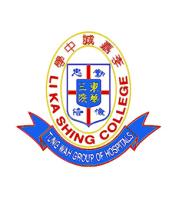| Language Policy |
Developing students’ biliterate and trilingual abilities has been one of our major concerns for years. To this end, we have been implementing a range of measures and strategies including: <br>1. Introducing school-based English curricula, including Literature in English and Language across the Curriculum to junior forms in order to maximize students’ exposure to English and their opportunities to learn the language;<br>2. Participating in the Chinese Language SEED Project of the EDB with eight of our Chinese teachers being seconded to the EDB to promote curriculum reform, thus enabling our teachers to keep abreast of the trends in curriculum development; and<br>3. Enhancing students' Putonghua proficiency through Putonghua lessons and other learning activities. |
| Learning and Teaching Strategies |
1. We provide formal curriculum education to ensure that students achieve distinguished results in personal learning and public examinations.<br>2. We endeavour to build up an environment conducive to learning in English through a variety of activities including English Speaking Day, English Week and foreign students exchange programmes, etc.<br>3. We actively participate in pilot programmes for various subjects, such as Chinese, English, Mathematics, and Information Technology Education. We also arrange for our outstanding teachers to be seconded to the EDB to assist in promoting curriculum development across Hong Kong.<br>4. To suit the needs of students, our teachers design school-based curricula, such as Chinese Language, STEAM and Integrated Arts Education.<br>5. We introduce new pedagogies, such as collaborative learning, drama in education, and cross-curricular project assessment. We also arrange co-planning periods for teachers and encourage them to participate in peer observation and lesson study to enhance teaching effectiveness.<br>6. We implement the "Bring Your Own Device (BYOD) Programme", allowing students to enhance the effectiveness of learning and teaching through self-directed learning and interactive learning modes.<br>7. We strengthen the training of students' thinking and self-learning abilities, establish reflective learning habits, and adapt to the needs of the times.<br>8. We provide students with numerous opportunities for overseas learning, allowing them to step out of the classroom and cultivate a global vision. |
| School-based curriculum |
1. Electives: 3X. Our school offers 14 elective subjects. Students can choose to study according to their abilities and interests.<br> 2. Curriculum highlights: Language across the Curriculum (S.1 to S.2), English Literature (S.3), Computer Literacy (S.1 to S.3), Design & Technology (S.1 to S.3), STEAM Education (S.4 to S.5), Integrated Arts Education (S.4 to S.5), Moral & Civic Education (School-based Moral Education and S.1 to S.3 Tung Wah Group of Hospitals Moral Education Curriculum are implemented). |
| Approach to Catering for Learner Diversity |
Arranging small class teaching, English and Mathematics classes for elite and academically weaker students to cater for learning diversity. The Junior Elite Programme, which includes diverse activities, is established to enhance students' enthusiasm for learning, thus fostering high achievers across a range of subjects. |
| Approach to Integrated Education |
Our school has set up the Student Support Team (SST) for students with special education needs (SEN). Members of the team consist of the Principal, Vice Principal, Counselling Mistress, Discipline Mistress, SEN coordinator, educational psychologist, speech therapist, school social workers, class teachers, teaching assistants, etc. By adopting the Whole School Approach, we hope to cater to individual differences through optimizing teaching and learning strategies, providing evaluation, referral, counselling, and training services. <br>Regarding the allocation of resources, we have holistically and flexibly utilized learning support grants together with other school's resources to provide the students in need with training on development of social skills, emotional control, executive skills, speech and language group therapy, after-school tutorial classes, homework and test and examination accommodation, and career guidance. Besides, we have not only closely communicated with parents of children with special educational needs but also encouraged parents to attend seminars so as to help them understand the learning characteristics of students with SEN and to cooperate with the measures taken by the school.<br>To enhance teachers' professional capacity in catering to SEN students, teachers are encouraged to attend EDB's teacher professional development programmes on special education. |
| Education Support for Non-Chinese Speaking (NCS) Students |
|
| Home-School Co-operation |
Having been established for more than a decade, the Parent Teacher Association is a channel of communication between parents and the school. The association is involved in formulating school policies and organizes a range of parent education activities involving both parents and their children. PTA is an intimate working partner of the school. |
| School Ethos |
Launching different programmes and activities including "Big-brother-big sister" programme, "Double Form Teachers Scheme", "Whole School Approach" on discipline and guidance policy to help new students adapt to new school life. |
| School Development Plan |
1. To strengthen English training so as to equip the students with the abilities to switch to EMI learning;<br>2. To promote Arts Education through various activities;<br>3. To promote STEAM education, developing students' generic skills through interdisciplinary learning.<br>4. To cultivate a positive learning attitude and promote active learning among students;<br>5. To nurture the qualities and sense of belonging of students, cultivate their positive values and develop their leadership traits through character building. |
| Teacher Professional Training and Development |
To encourage teachers to learn from their peers and to enhance learning and teaching effectiveness, we have been promoting peer lesson observations and co-planning lessons. The Staff Development Committee has also been set up to coordinate teacher development activities considering the needs of the school and teachers. |
| Life-wide Learning |
There are over 40 extra-curricular activity groups, which can be divided into the categories of academic, service, interest and sports. Students can choose, according to their preference, to join at least one of these extra-curricular activities. Every S.1 to S.3 student must participate in the "One Art for Life ". Students who have continuously participated in a particular extra-curricular activity will be awarded with certificates (from Bronze prize to Gold prize) and merit points (maximum two minor merits). |
